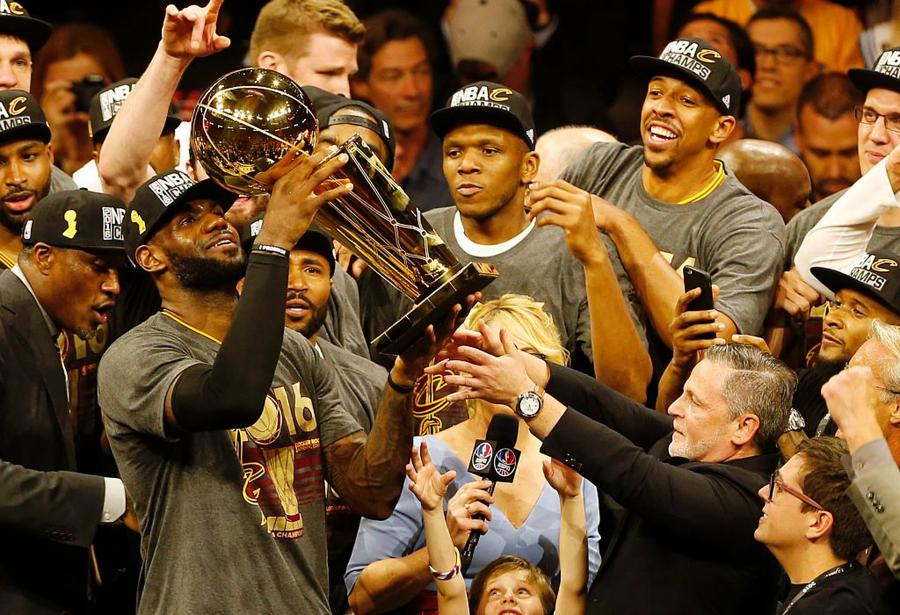The Cleveland Cavaliers made a comeback against the Golden State Warriors in this year's NBA Finals that was historic for a number of reasons: it was the first time a team had come back from a 3-1 deficit in the NBA Finals; Kyrie Irving and LeBron James became the first teammates to score 40 points apiece in an NBA Finals game; and the Game 7 victory ended a 52-year title drought for the city of Cleveland.
Their luxury tax bill in the off-season following their championship will also go down as one of the highest ever. Cavs owner Dan Gilbert has to pay $54 million in taxes to the league.
The league's annual audit established next season's salary cap at $94.1 million, and confirmed that seven teams, led far and away by Cleveland, surpassed the $84.7 million tax threshold for the 2015-16 campaign. Next year's tax threshold will be $113.3 million.

BECK DIEFENBACH/AFP/Getty Images
Cleveland has until the month is over to pay its bill. The other teams that owe money in luxury tax are the Los Angeles Clippers, who owe $19.9 million in luxury tax, the Golden State Warriors ($14.8 million), the Oklahoma City Thunder ($14.5 million), the San Antonio Spurs ($4.9 million), the Houston Rockets ($4.9 million) and the Chicago Bulls ($4.2 million). Only the Bulls failed to make the postseason with their expensive roster.
If you're scoring at home, the other six teams spent $63.2 million between them. Again, Cleveland spent $54 million, only around $9 million less than the other six teams, combined.
In total, that's about $114 million in luxury taxes across the league. Thanks to the league's revenue-sharing plan, 50 percent will be used to fund revenue sharing for the previous season, while the other 23 non-tax-paying teams will take home the remaining 50 percent. That works out to about $2.5 million per team.
While Gilbert's wallet will certainly be aching, at least he can take some comfort in knowing his overspending brought him a championship. The Brooklyn Nets have the all-time record for highest luxury tax, spending a whopping $90.5 million in tax alone during the 2013-14 season. Unlike Brooklyn, that season ended in a second-round exit for the Nets. Sometimes it pays to overspend.
/2015/10/GettyImages-461505116.jpg)
/2016/06/GettyImages-504844150.jpg)
/2020/11/GettyImages-1201952123.jpg)
/2017/09/GettyImages-667847096.jpg)
/2012/09/k.jpg)
/2020/11/GettyImages-1133720221.jpg)
/2019/01/James-Altucher.jpg)
/2013/12/dan.jpg)
/2011/12/John-Mara-1.jpg)
:strip_exif()/2020/06/taylor.png)
/2010/12/kate-1.jpg)
/2020/10/the-miz.png)
/2011/12/Rooney-Mara1.jpg)
/2020/08/gc-1.jpg)
/2014/04/GettyImages-886617106.jpg)
/2011/01/Aaron-Rodgers.jpg)
/2022/10/peter-krause.jpg)
/2010/03/emil.jpg)
/2020/04/hailey-joel.png)
/2015/09/Daley-Thompson.jpg)
/2020/10/david.jpg)
/2009/11/Brandon-Jennings.jpg)
/2019/01/Kennedy-Montgomery.jpg)